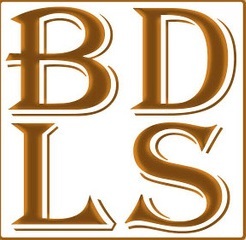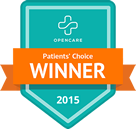Chicago Dentist Discusses Drill-Less Dentistry
One of the most feared tools in the dentist's office is the drill. The high whine is enough to give anyone the shivers, and the heat, vibration and smell it produces when grinding a tooth is, at best, unpleasant. Due to this, many people find the idea of "drill-less dentistry" attractive. But what does "drill-less" dentistry mean? And is it right for you? Let's dive deeper with our Chicago dentist at Bright Dental of Logan Square.
What Does "Drill-Less Dentistry" Mean?
When people talk about drill-less dentistry, they usually mean one of three things:
• Air Abrasion
Air abrasion uses a tool that directs a jet of air and silica, aluminum oxide, or baking soda toward your teeth. The air and the particles clear decay, which is then removed by suction. It's safe, usually painless, and better at preserving the healthy part of your tooth than a drill, which can crack your enamel.
• Lasers
Yes, that's right, some dentists actually use lasers! These tools, called dental hard tissue lasers, use a concentrated beam along with a stream of water to cool the tooth. There is no vibration or unpleasant smell, and many patients find they don't need anesthesia.
• Cavity Prevention
Instead of a fancy new tool, this take on drill-less dentistry is based on the idea that it is better to treat decay in the early stages than repair teeth after decay has caused a cavity. For a long time dentists thought that decay was fast-moving, which made it better to drill away any decay and fill in the space left. However, recent studies suggest that decay is a lot slower than previously thought, and that early decay can be effectively removed and treated long before a drill is necessary.
Is Drill-Less Dentistry for Me?
It depends on a number of factors. Air abrasion is useful in cases of minimal decay right on the surface, but not for more advanced cavities. Lasers can sometimes be just as painful as a drill, and the technology is much more costly. You will also need to check with your insurance to make sure these procedures are covered. The most promising is a focus on cavity prevention. Talk to our Chicago dentist about proactive decay detection and treatment.
Conclusion
While sometimes a drill is still the best tool to fix a cavity, there are tools and methods nowadays that can help you avoid the drill as much as possible. If you hate the drill, take heart and look into your options. Under the right circumstances, you may never have to have your teeth drilled again.
If you have any questions, or would like to schedule and appointment with Dr. Chae, leading Chicago dentist, please call our office today at 773-276-9280.




